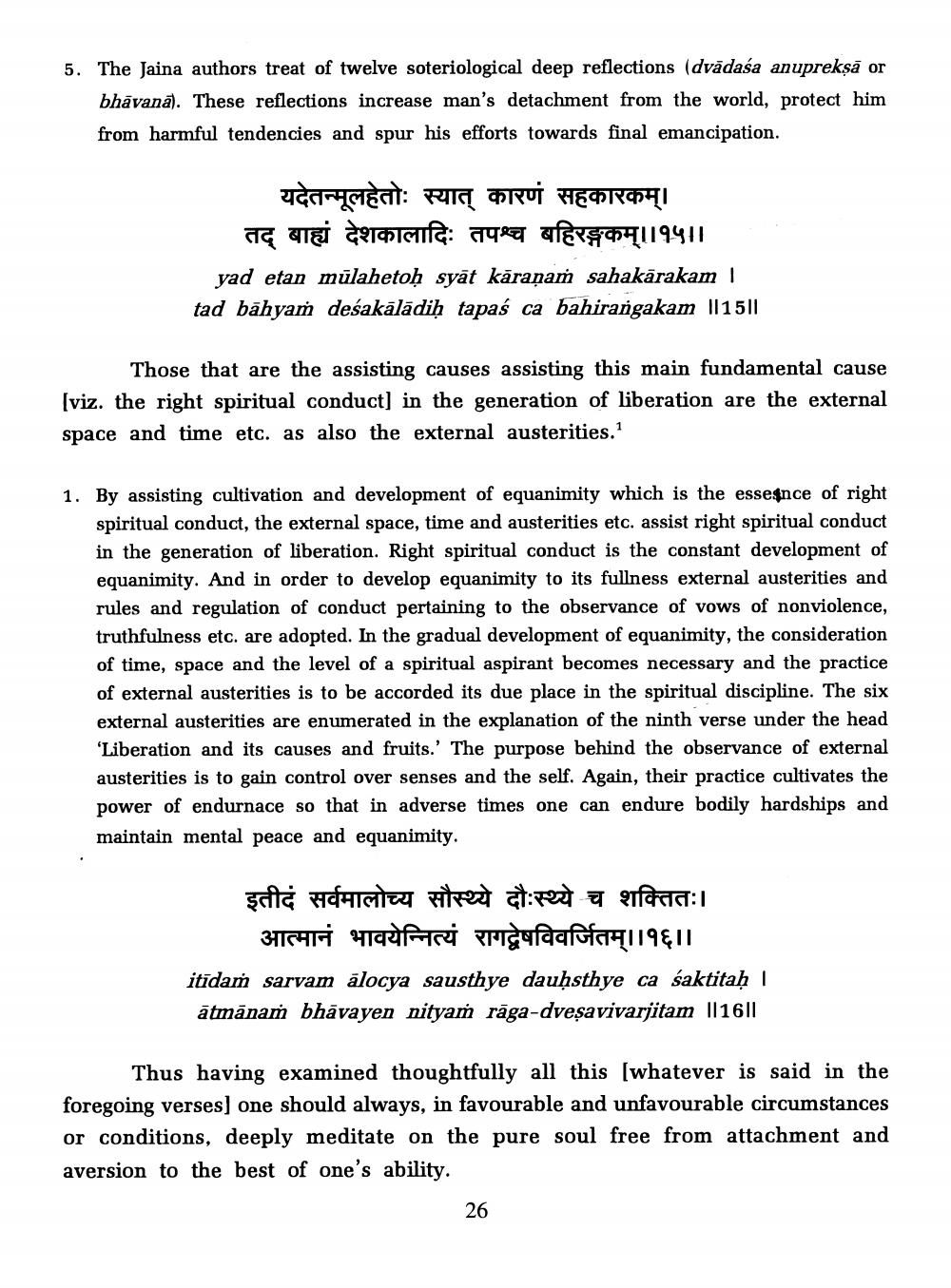________________
5. The Jaina authors treat of twelve soteriological deep reflections (dvādaśa anupreksā or
bhāvanā). These reflections increase man's detachment from the world, protect him from harmful tendencies and spur his efforts towards final emancipation.
यदेतन्मूलहेतोः स्यात् कारणं सहकारकम्। तद् बाह्य देशकालादिः तपश्च बहिरङ्गकम्।।१५।। yad etan mūlahetoḥ syāt kāraṇam sahakārakam | tad bāhyaṁ deśakālādiņ tapaś ca bahirangakam ||15||
Those that are the assisting causes assisting this main fundamental cause (viz. the right spiritual conduct) in the generation of liberation are the external space and time etc. as also the external austerities."
1. By assisting cultivation and development of equanimity which is the essence of right
spiritual conduct, the external space, time and austerities etc. assist right spiritual conduct in the generation of liberation. Right spiritual conduct is the constant development of equanimity. And in order to develop equanimity to its fullness external austerities and rules and regulation of conduct pertaining to the observance of vows of nonviolence, truthfulness etc. are adopted. In the gradual development of equanimity, the consideration of time, space and the level of a spiritual aspirant becomes necessary and the practice of external austerities is to be accorded its due place in the spiritual discipline. The six external austerities are enumerated in the explanation of the ninth verse under the head 'Liberation and its causes and fruits.' The purpose behind the observance of external austerities is to gain control over senses and the self. Again, their practice cultivates the power of endurnace so that in adverse times one can endure bodily hardships and maintain mental peace and equanimity.
इतीदं सर्वमालोच्य सौस्थ्ये दौःस्थ्ये च शक्तितः।
आत्मानं भावयेन्नित्यं रागद्वेषविवर्जितम्।।१६।। itīdam sarvam alocya sausthye dauḥsthye ca śaktitaḥ | ātmānam bhāvayen nityaṁ rāga-dveşavivarjitam ||16||
Thus having examined thoughtfully all this (whatever is said in the foregoing verses) one should always, in favourable and unfavourable circumstances or conditions, deeply meditate on the pure soul free from attachment and aversion to the best of one's ability.
26




